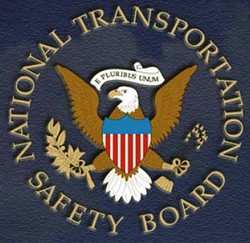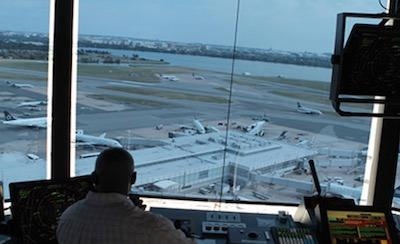Thu, Apr 25, 2024
NTSB Praises New FAA Policy on Controller Rest and Duty Time
The NTSB has long highlighted the risks associated with fatigue among air traffic controllers, advocating for changes to ensure they receive adequate rest. Recently, NTSB Chair Jennifer Homendy praised the new FAA regulation requiring air traffic controllers to have at least 10 hours off between shifts and 12 hours off before a midnight shift. This policy adjustment aims to enhance safety by ensuring controllers are well-rested and alert.

This initiative comes after tragic incidents that underscored the severe implications of controller fatigue. A notable example is the Comair flight 5191 crash on August 27, 2006, in Lexington, Kentucky, where 49 lives were lost when a plane took off from the wrong runway. The controller on duty had returned to work just nine hours after completing his previous shift, having managed only a two-hour nap in the interim. The lack of rest was pointed out in the investigation as a significant factor contributing to the accident.
Another incident that brought this issue to the forefront occurred on March 23, 2011, at Ronald Reagan Washington National Airport. An air traffic controller fell asleep during a midnight shift, leading to a situation where two commercial airplanes landed without assistance from the control tower. The NTSB investigation attributed the controller's lapse to acute fatigue, exacerbated by consecutive midnight shifts and scheduling practices that did not allow for sufficient rest.

Homendy's remarks underline the ongoing concern and need for systemic changes in how air traffic controllers' shifts are scheduled. "We have been calling for action on controller fatigue for more than 18 years," Homendy stated, expressing her approval of the FAA's decision while also acknowledging that more efforts are needed to fully address the issue.
This recent mandate by the FAA is seen as a significant step towards rectifying long-standing safety concerns, aiming to prevent the type of errors that can lead to catastrophic consequences. The focus on adequate rest aligns with broader safety management strategies essential for the high-stakes nature of air traffic control.
More News
He Attempted To Restart The Engine Three Times. On The Third Restart Attempt, He Noticed That Flames Were Coming Out From The Right Wing Near The Fuel Cap Analysis: The pilot repor>[...]
Make Sure You NEVER Miss A New Story From Aero-News Network Do you ever feel like you never see posts from a certain person or page on Facebook or Instagram? Here’s how you c>[...]
From 2009 (YouTube Edition): Leading Air Show Performers Give Their Best Advice for Newcomers On December 6th through December 9th, the Paris Las Vegas Hotel hosted over 1,500 air >[...]
Aero Linx: NASA ASRS ASRS captures confidential reports, analyzes the resulting aviation safety data, and disseminates vital information to the aviation community. The ASRS is an i>[...]
“For our inaugural Pylon Racing Seminar in Roswell, we were thrilled to certify 60 pilots across our six closed-course pylon race classes. Not only did this year’s PRS >[...]
 NTSB Final Report: Rutan Long-EZ
NTSB Final Report: Rutan Long-EZ ANN FAQ: Turn On Post Notifications
ANN FAQ: Turn On Post Notifications Classic Aero-TV: ICAS Perspectives - Advice for New Air Show Performers
Classic Aero-TV: ICAS Perspectives - Advice for New Air Show Performers ANN's Daily Aero-Linx (06.28.25)
ANN's Daily Aero-Linx (06.28.25) Aero-News: Quote of the Day (06.28.25)
Aero-News: Quote of the Day (06.28.25)




